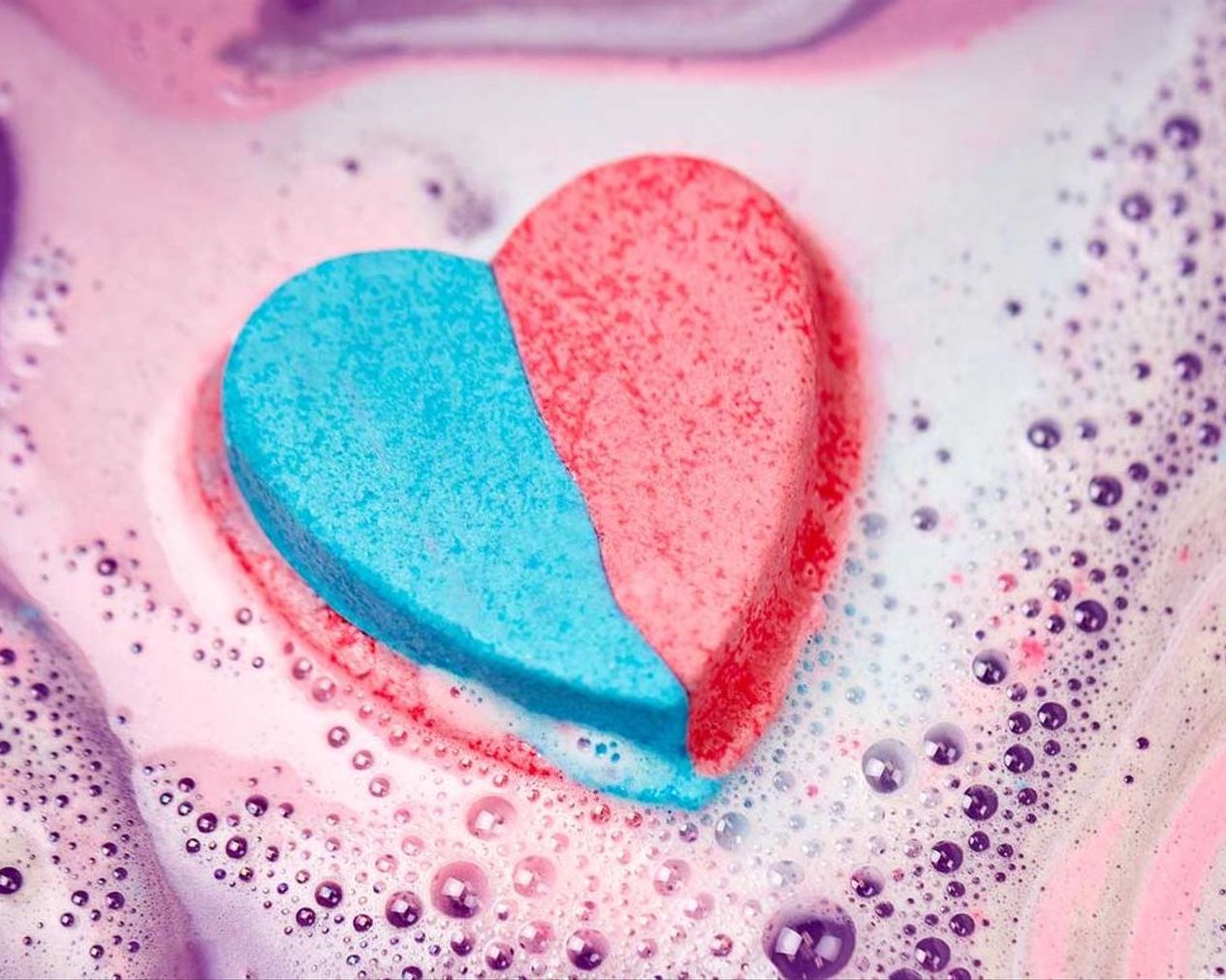A LUSHious Kind of Love
Gallery

LUSH, the organic cosmetics store known for colorful bath fizzies and soaps is not allowed to sell its “Love Soap” with #GayIsOkay printed on them in one hundred stores worldwide due to certain countries having “anti-gay” laws. Keeping a store from selling soaps, ironically, has actually brought worldwide attention to the issue.
This year LUSH began the campaign #TransRightsAreHumanRights to help organizations that promote rights for transgender folks such as National Center for Transgender Equality, the Canadian Centre for Gender and Sexual Diversity. LUSH created a heart shaped bath melt called “Inner Truth,” colored blue and pink which are the colors of the transgender flag. One hundred percent of the purchase price is donated to organizations like those listed above. Along with this LUSH provides free booklets that detail how to be an ally to transgender and non-binary communities.
While LUSH’s “Inner Truth” bath melt is a more recent case of a business supporting LGBTQ communities, they are not the only ones. The shoe brand Converse created rainbow colored “Converse Pride” shoes which were inspired by the first Pride parade in New York in 1970. Target created an entire rainbow-colored clothing line telling customers to show their love “loud and proud.” Starbucks raised a Pride flag over its Seattle headquarters and reportedly told a shareholder who was anti-LGBTQ that he could put his money somewhere else.
This raises the question: Why does it matter that companies are LGBTQ inclusive? As demonstrated by countries banning LUSH’s “Love Soap,” the world has yet to fully accept the LGBTQ community. In the United States, we have elected a president who could not hold up on the promises from his campaign to be more LGBTQ inclusive. The Trump administration tried to reinstate the ban on transgender people in the military. Michigan is among many states that has yet to prevent businesses from discriminating against employees based on their sexual orientation and gender preference. The Michigan Civil Rights Commission last year declined to consider including LGBTQ rights in the state’s laws against sex discrimination.
In a survey done by Ogilvy, 64 percent of Americans said that they were more likely to spend money on businesses and brands that are perceived as LGBTQ inclusive. A key aspect in presenting a business as inclusive is through the way they advertise. JCPenney came under fire for including a gay couple in their catalogue back in 2012 and for also choosing openly gay television host Ellen Degeneres. Meanwhile, IKEA created a commercial simply titled “Dream” that has an interracial same-sex couple that tries to prove to viewers that all homes are created equal. But even these advertisements are not enough.
If the company talks the talk but does not walk the walk and contradicts itself, many agree that the business is not genuine. Why create an entire campaign or clothing line and then not follow through? It is not enough for a business to toss in a random ad during the month of June or to target the LGBTQ community. According to the same Ogilvy survey, 75 percent of Americans believe businesses need to employ a diverse set of employees to better serve the public. In the work environment, when someone is allowed to be open, to be happy, and to be who they are, they are much more productive.
Selling a LGBTQ themed product is a small but mighty step forward. LUSH, despite being banned from selling certain products across the water, is showing that the message of love can be spread through simple ways at home.
